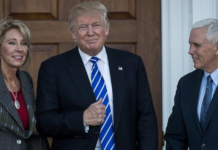A couple of years ago, a casual acquaintance – I’ll call her Susie – out of the blue asked me what church I go to. The question caught me off guard, as I live in an area where religion is more of a private matter than in other regions of the country so it’s not a topic that is often raised. In order to avoid what was sure to be an irritating and possibly awkward conversation, I simply responded that I don’t go to church. But Susie missed the hint and asked why to which I replied: “Because I don’t believe in God.” Following an amateurish effort to hide her horror, Susie proceeded to reaffirm why I try to avoid having this conversation with strangers. She informed me that my life can’t possibly have true meaning without God: that I am short-changing my daughter by not exposing her to religion; that all things being equal, the person with Christ in her heart is the one most likely to have her life together and to be a better friend. She invited me to start attending her “born again” church – and of course, to bring my 2-year-old daughter. Blatant arrogance, condescension, and bad form aside, I recognized that Susie likely had good intentions so I suppressed my baser instincts, smiled, and replied, “No, thank you.”
I had had conversations like this one in the past, but being that this was the first time since becoming a parent that someone felt the need to let me know what I was missing by not participating in religion, this event has stayed in my mind more so than those of my pre-mommy days. The sheer audacity of a perfect stranger to not just pass but express a value judgment about the kind of person I am—and more to the point, the kind of mother I am—based on nothing more than this single piece of (irrelevant) information stuck in my craw then and now. Since becoming a mother, my purpose in life has never been so clear or my moral compass so true. I am conscious every moment of every day of the influence I have on my child’s self esteem, personality, and character, and of my responsibility to teach her moral principles by my actions—even the ones she doesn’t see. Miraculously, I have somehow managed to come to these conclusions all on my own, without the guidance of holy books or holier-than-thou busy-bodies bearing unsolicited parenting advice. Something Susie and many others like her seem to believe is unlikely if not impossible.
We hear a great deal these days about political correctness. Whether or not one agrees with the application of being “PC” or not, it is irrefutable that some topics are danced around in ways that range from courteous to mildly awkward to stretches of Gumby-like proportions. Religion is clearly one such topic. We have holiday parties instead of Christmas parties so that our Jewish, Muslim, or Buddhist friends don’t feel left out. People take great pains not to stereotype members of any particular religion, at least not publicly. Terrorism in the Middle East, for example, presents a linguistic minefield for journalists and politicians who talk and write in elaborate circles to ensure that their words aren’t interpreted as portraying Islam or its practitioners as supportive of terrorism. We hear non-denominational invocations at commencements and other public events so that belief in a higher power of pretty much any stripe is accommodated and no specific faith is omitted or challenged. Opponents of political correctness sometimes cry foul over such measures, claiming they are tantamount to attacks on their faith or their ability to practice it openly, while supporters of political correctness argue the importance of sensitivity and inclusion. The irony of such arguments is their blithe indifference to an entire segment of the population whose value system does not include belief in a higher power. There is no concern for the sensibilities of those who have no religious affiliation or don’t wish to participate in religious rituals; for some reason it is unacceptable to alienate, say, the Hindus in the audience, but perfectly OK to alienate the atheists.
Had I told Susie that I worshiped at a temple or a mosque, I suspect she would not have admonished me for not exposing my child to other religions, even if she felt I was practicing the wrong one. But like so many others, she mistook my absence of a belief in God as an absence of a belief in anything, as though where others have God and a proscribed set of religious rules by which to live I simply have a void—no purpose, no values, no yardstick for measuring what is right or wrong. In fact, nothing could be farther from the truth. For me, not believing in God is liberating because it allows me to formulate my own ideas and adapt them if new information comes to light, or as life experiences shape my perspective. I am free to change my mind without the crisis of faith I have seen friends endure when their own life experiences challenge what they have been taught by their religion. Being an atheist forces me to be a better person because it requires me to take full accountability for my choices and their consequences. I cannot rely on a supreme being to absolve me of the sins I confess secretly, but instead can be forgiven only by the kindness of others. As a result, I try harder to treat people right the first time around. I can’t “give it up to God” when hard times hit, so I have become strong and learned how to take care of myself, and I have built deep bonds with my friends and family so that I can rely on their love and support to carry me when I can’t do it alone. And my knowledge that the universe is random enhances rather than diminishes the joy and appreciation I feel for the wonders in my life—my perfect daughter, my loving husband, the chance encounters that lead to devoted friendships or life-changing experiences. Not ascribing those events to divine intervention or a predetermined plan makes me that much more grateful for them because I know that they almost didn’t happen.
I don’t necessarily have an agenda to change anyone’s mind about their own religious beliefs. The majority of the people who are close to me have some level of belief in a personal god from which they derive strength in hard times, a sense of identity, and a community of support. What is on my agenda is to demonstrate to the world that belief in God is not a prerequisite for living a virtuous life, or for being a good and loving parent. I wish to be judged on my actions rather than abstractions, and I wish the same for all humans . . . Especially for my daughter.








What did you think of this article?